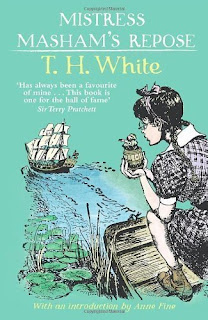Rating: 4/5
Review:
A decent novel, but somewhat flawed
Overall, I enjoyed this book. It's not quite what I
expected and it has its flaws, but it kept me reading and has some good
moments.
The book is narrated in the first person by Jack Wyeth, a
musician and writer who isn't very successful at either and is lost and adrift
in life. Out of the blue comes an invitation to ghost-write the
autobiography of Eli Page, a Dylan-like hero figure to Jack, whose songs were
hugely popular decades ago but who is now a damaged virtual recluse in a small New
England town. His time with Eli forces John to
acknowledge and confront his own past and his own failings, he meets a woman,
makes an enemy of the local cop, has to confront small-town small-mindedness,
becomes embroiled in a series of crimes which point to Eli...and so on.
It's better than it sounds, but there is a rather familiar feel to a lot
of the plot, and the climax verges on the criminally cliché-ed.
Nonetheless, W.B Belcher writes well and creates quite
convincing characters and a sense of place, so it did draw me in and keep me
reading. Surprisingly, though, I didn't think he really conveyed that
sense of the power of songs which shape our youth and our growing up and
which seem woven into our very bones, nor of the almost mythical status
their creators can achieve in our minds. I was hoping for a sense of what
it might be like to meet one of those who did that for me - Joni Mitchell or Bob
Dylan or Leonard Cohen or Paul Simon, for example - but I found these aspects of
the book a bit disappointing. This is John's story of his finding some
maturity rather than a story of music and its creators; it's not bad, but it's
not particularly great or particularly original.
I enjoyed this enough to round 3.5 stars up to 4, but I
thought it could have been a good deal better, especially about the music,
given that a musician was at its heart.
Recommended with some reservations.




































